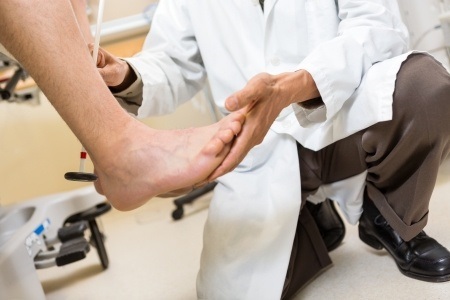
The start of November marks the beginning of National Diabetes Month, celebrated to raise awareness about a disease that has become a public health issue in the United States. Put simply, diabetes occurs when there is too much sugar in the blood. There are 3 types of diabetes. Type I diabetes is caused by a lack of insulin (a hormone that takes sugar out of the blood) production; Type II diabetes is caused by insulin resistance; and gestational diabetes is caused by pregnancy. Uncontrolled, diabetes can lead to blindness, kidney failure, neuropathy, and more.
The feet are packed with nerves and blood vessels, making them particularly susceptible to the negative effects of diabetes. As a result, diabetics need to take great care with the type of footwear they choose to wear on their feet. In order to avoid the likes of ulcers, fungal infections, blisters, and more, take note of the following footwear tips:
- Shoes that are stable around the major joints of the foot and ankle will reduce the amount of inflammation and pain.
- Shoes that allow little lateral movement will reduce the amount of friction and irritation on the feet, decreasing the chance of infection.
- Shoes that provide cushion and shock absorption to the heel and arch will reduce the amount of pressure on the foot, protecting them from wear and tear.
- Consider speaking to your podiatrist about custom-molded orthotics that are designed to relieve pressure and discomfort based on the unique shape of your foot.
Diabetic foot care can be a complex field, but fortunately for those in Central New York, board-certified podiatrist Dr. Ryan. L. D’Amico of Syracuse Podiatry has a special interest in the field. He will carefully treat any of the above deformities and more, including ingrown toenails, hammertoes, or calluses and corns. He can also recommend lifestyle changes to make sure your feet remain healthy for years. If you would like, you can start by contacting us through our website, or you can call our Fayetteville office at (315) 446-3668 to schedule an appointment!
